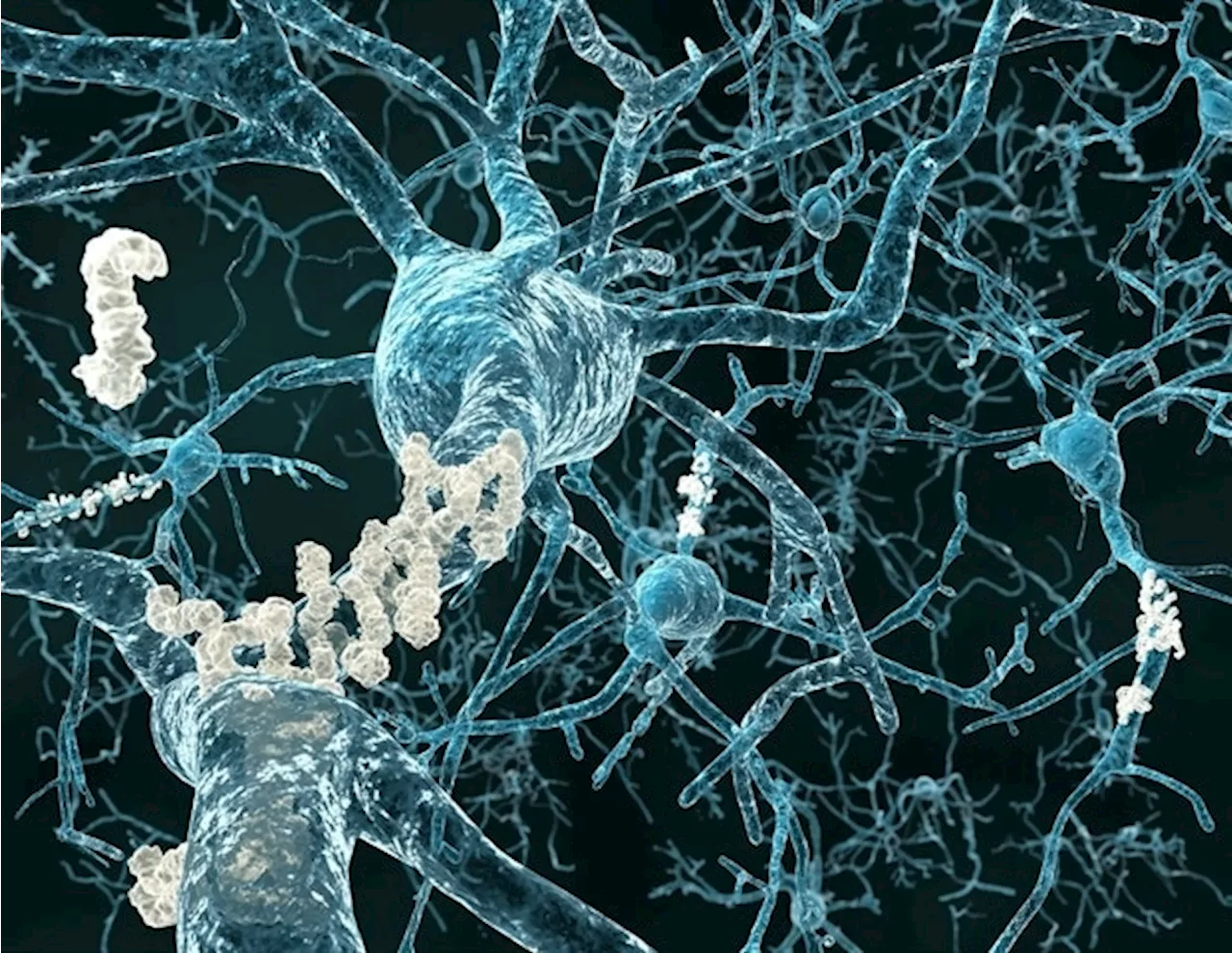Protein imbalances that increase brain cell excitability may explain why individuals with Alzheimer's disease (AD) who also experience seizures demonstrate more rapid cognitive decline than those who do not experience seizures.
May 2 2024University of Pennsylvania School of Medicine Protein imbalances that increase brain cell excitability may explain why individuals with Alzheimer's disease who also experience seizures demonstrate more rapid cognitive decline than those who do not experience seizures. These imbalances may be present in the brains of individuals before the onset of AD symptoms.
Previous research has shown similar brain activity in individuals with AD who experience epilepsy. Additionally, many individuals with AD have also experienced at least one seizure, and previous research has shown that these seizures cause a more rapid progression of the disease, and worsen cognitive impairment, like trouble with memory or learning. However, researchers have not been able to identify the underlying connections between AD and seizures.
In this study, researchers evaluated post-mortem tissue from people with AD who also experienced at least one seizure and found that certain forms of these neurotransmitters were dysregulated. These neurons in these individuals exhibited increased excitability and suppressed inhibition, which result in the brain sending more signals between neurons than it needs to, a state that researchers refer to as a "hyperactive brain.
Alzheimer's Disease Brain Brain Cell Cell Cognitive Function Epilepsy Hospital Medicine Neurology Neurons Protein Rapamycin Research Seizure
United Kingdom Latest News, United Kingdom Headlines
Similar News:You can also read news stories similar to this one that we have collected from other news sources.
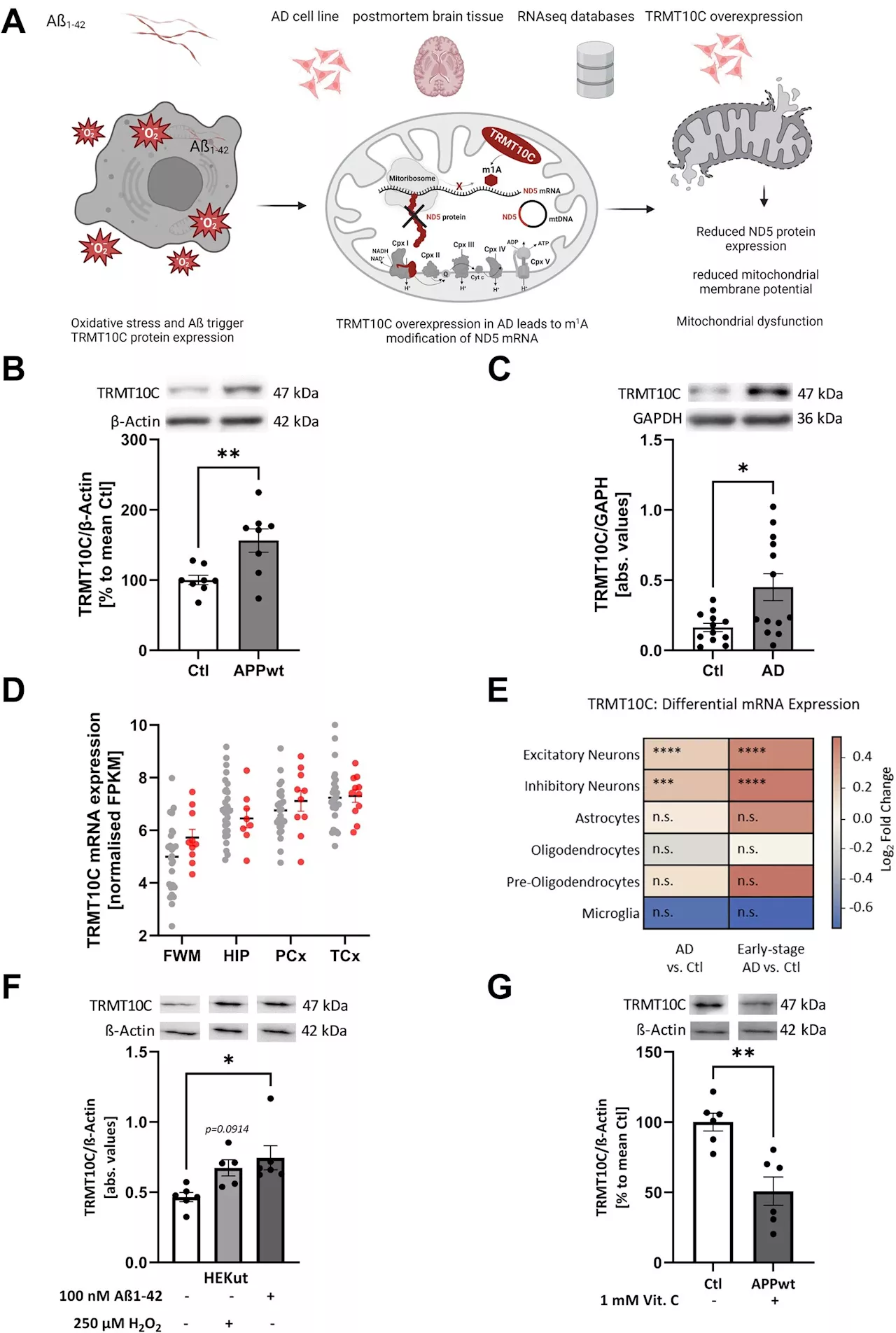 Study finds RNA modification is responsible for disruption of mitochondrial protein synthesis in Alzheimer's diseaseA team of researchers at Johannes Gutenberg University Mainz (JGU) has identified a mechanism that causes mitochondrial dysfunction in Alzheimer's patients resulting in a reduction of the supply of energy to the brain.
Study finds RNA modification is responsible for disruption of mitochondrial protein synthesis in Alzheimer's diseaseA team of researchers at Johannes Gutenberg University Mainz (JGU) has identified a mechanism that causes mitochondrial dysfunction in Alzheimer's patients resulting in a reduction of the supply of energy to the brain.
Read more »
 Protein powders & supplements: Men and women can boost their training and muscle strength with protein powerWomen are packing a powerful punch in the gym, embracing weight lifting into their exercise routines, but they’re slower off the mark when it comes to harnessing the power of protein.This is paid for content, readers are encouraged to seek NHS advice before taking any supplements.
Protein powders & supplements: Men and women can boost their training and muscle strength with protein powerWomen are packing a powerful punch in the gym, embracing weight lifting into their exercise routines, but they’re slower off the mark when it comes to harnessing the power of protein.This is paid for content, readers are encouraged to seek NHS advice before taking any supplements.
Read more »
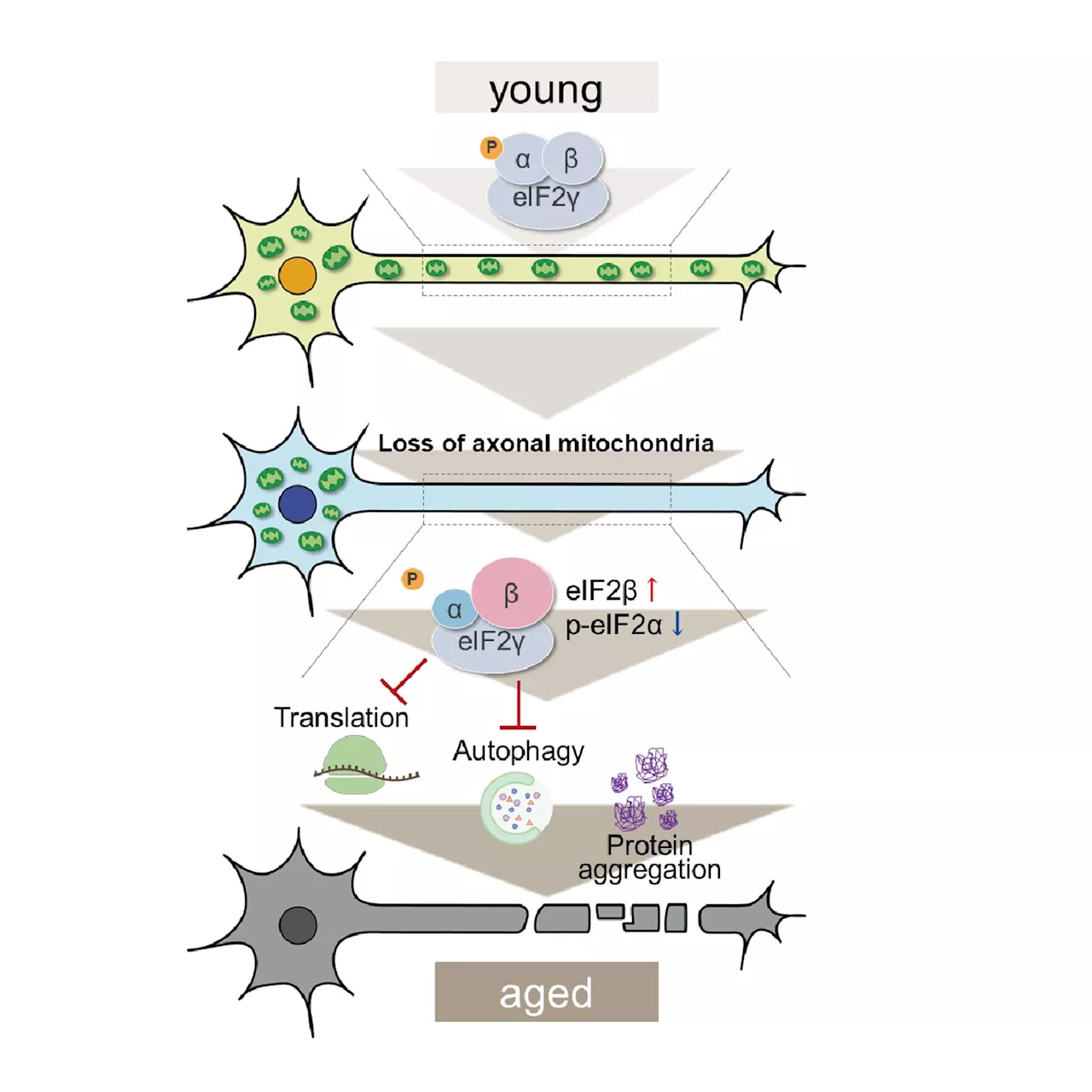 Study shows how depletion of mitochondria in axons can directly lead to protein accumulationResearchers from Tokyo Metropolitan University have identified how proteins collect abnormally in neurons, a feature of neurodegenerative diseases like Alzheimer's. The research is published in the journal eLife.
Study shows how depletion of mitochondria in axons can directly lead to protein accumulationResearchers from Tokyo Metropolitan University have identified how proteins collect abnormally in neurons, a feature of neurodegenerative diseases like Alzheimer's. The research is published in the journal eLife.
Read more »
 Study shows TP53INP2 protein could provide new way to combat muscle loss during agingSarcopenia is a common disorder in older people, characterized by progressive loss of muscle mass and function, a condition that can significantly affect quality of life and increase the risk of falls, injury and dependency.
Study shows TP53INP2 protein could provide new way to combat muscle loss during agingSarcopenia is a common disorder in older people, characterized by progressive loss of muscle mass and function, a condition that can significantly affect quality of life and increase the risk of falls, injury and dependency.
Read more »
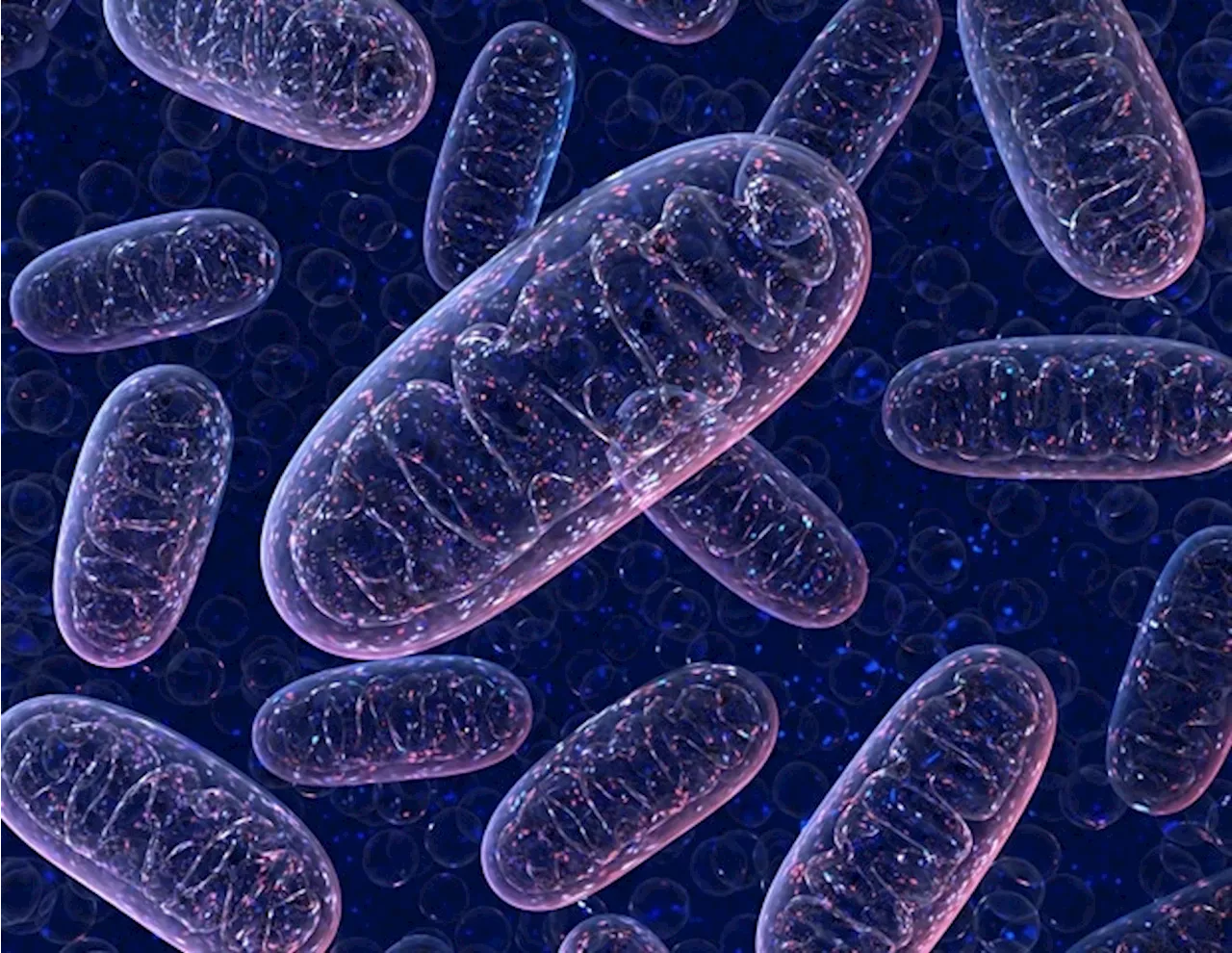 Mitochondrial depletion in axons linked to protein accumulation in neurodegenerative diseasesResearchers from Tokyo Metropolitan University have identified how proteins collect abnormally in neurons, a feature of neurodegenerative diseases like Alzheimer's.
Mitochondrial depletion in axons linked to protein accumulation in neurodegenerative diseasesResearchers from Tokyo Metropolitan University have identified how proteins collect abnormally in neurons, a feature of neurodegenerative diseases like Alzheimer's.
Read more »
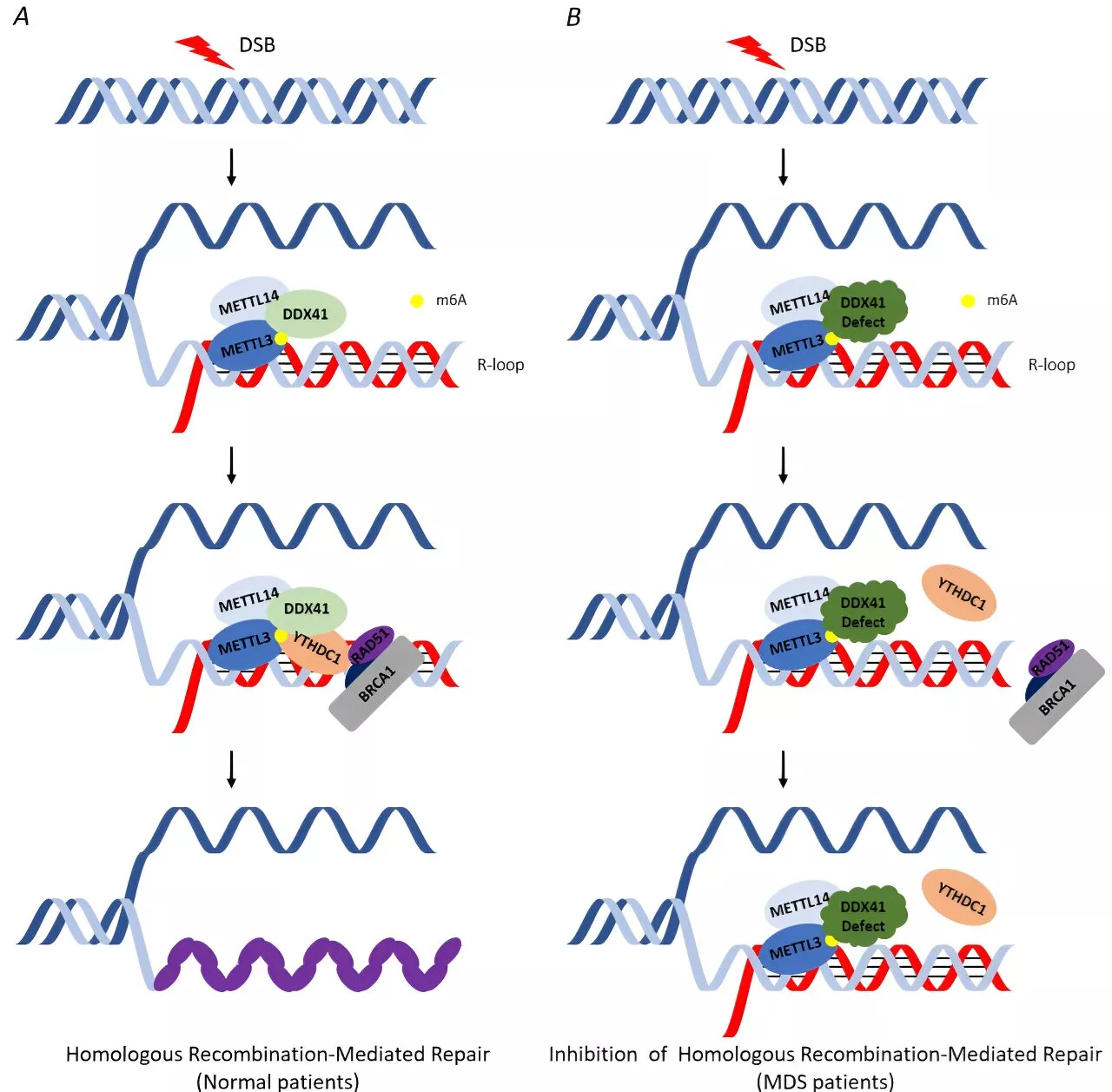 Study reveals insights into DDX41 protein's role in blood cancer pathogenesisA study led by Professors Hongtae Kim and JaYil Lee from the Department of Biological Sciences, in collaboration with researchers from the Catholic University of Korea, sheds light on the pivotal role of mutated DDX41 protein in the pathogenesis of Myelodysplastic Syndrome (MDS), a form of blood cancer.
Study reveals insights into DDX41 protein's role in blood cancer pathogenesisA study led by Professors Hongtae Kim and JaYil Lee from the Department of Biological Sciences, in collaboration with researchers from the Catholic University of Korea, sheds light on the pivotal role of mutated DDX41 protein in the pathogenesis of Myelodysplastic Syndrome (MDS), a form of blood cancer.
Read more »
